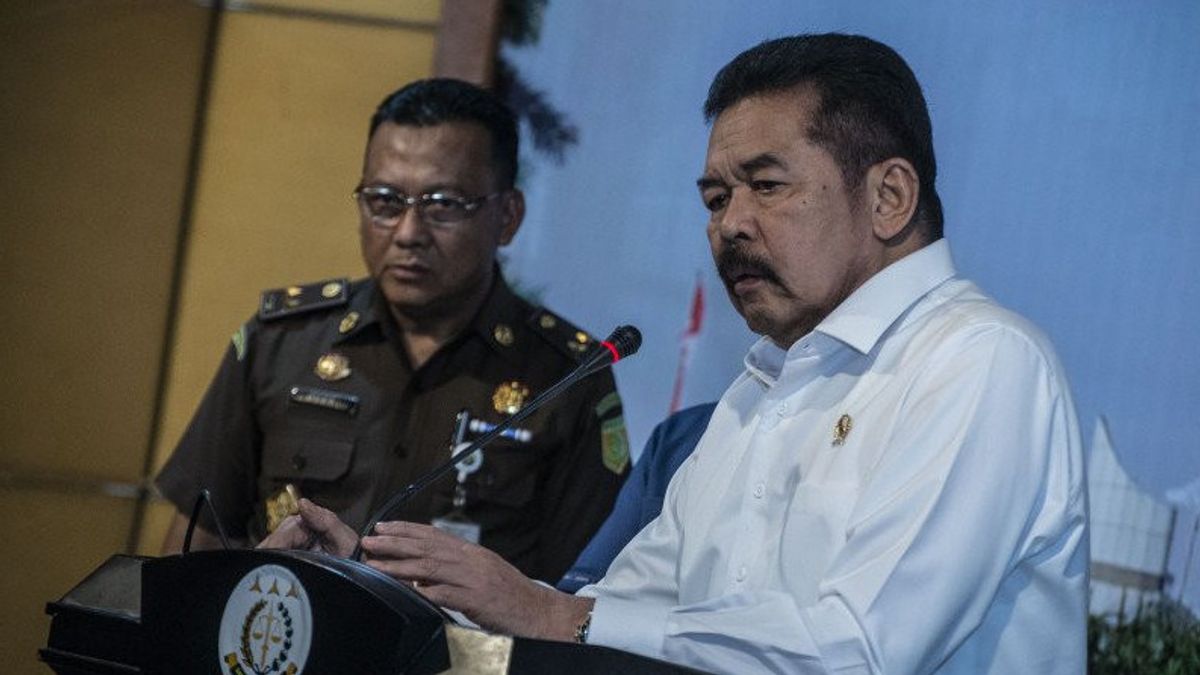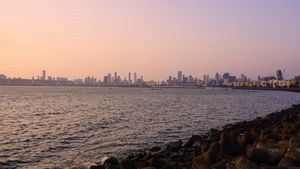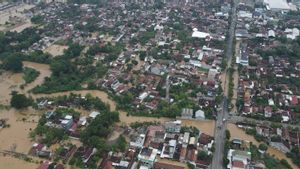JAKARTA - The Attorney General's Office (AGO) claims that the statement of the Attorney General regarding the Semanggi I and II events during a joint work meeting with Commission III of the DPR is different from the object of the dispute in the case at the Jakarta State Administrative Court (PTUN).
Junior Attorney General for Civil, State Administration (Jamdatun) Kejagung Ferry Wibisono said, on the object of the case in the PTUN, the Attorney General's statement was incomplete. The statement in question is not completely.
The statement of the Attorney General in question was 'Semanggi I and Semanggi II Incidents, which were the results of the DPR RI Plenary Meeting which stated that the incident was not a gross human rights violation'.
Meanwhile, the Attorney General's sentence is entirely 'Semanggi I and Semanggi II Incidents which have resulted in the DPR RI Plenary Session stating that the incident is not a serious human rights violation, Komnas HAM should not follow up because there is no reason to establish an ad hoc court based on the recommendation of the Indonesian Parliament. to the President to issue a presidential decree on the establishment of an ad hoc Human Rights Court in accordance with Article 43 Paragraph 2 of Law Number 26 Year 2000 concerning Human Rights Courts'.
"In the video recording there is no delivery of the Attorney General stating, 'Komnas HAM should not follow up because there is no reason for the establishment of an ad hoc court based on the recommendation of the Indonesian Parliament to the President to issue a presidential decree on the establishment of an ad hoc Human Rights Court in accordance with Article 43 Paragraph 2 of Law Number 26 Year 2000 on Human Rights Courts', "Ferry told reporters, Thursday, November 5.
In addition, Ferry assessed that the PTUN judges had ignored and did not consider the recorded evidence. Thus, the Attorney General is considered not to violate the principle of accuracy.
"The Jakarta State Administrative Court did not research the evidence as it should have been before deciding the case. For not carrying out the proper investigation, we then saw the Jakarta PTUN judge with his perception as if the sentence existed," he said.
The Jakarta State Administrative Court (PTUN) stated that Attorney General ST Burhanuddin had lost the lawsuit in court. The Attorney General is called against the law because he calls the Semanggi I and Semanggi II incidents not serious human rights violations.
This is stated in the lawsuit decision filed by Sumarsih, the mother of one of the victims of the 1998 tragedy. Sumarsih as the plaintiff and the Attorney General as the defendant. This means that the PTUN Jakarta won Sumarsih's lawsuit.
"On trial, it states that the defendants 'exceptions are not accepted. The main case is that the plaintiffs' claim is completely granted," said Chief Judge Andi Muh Ali Rahman, who was seen on the official website of the Supreme Court Decision Directory, Wednesday, November 4.
The PTUN judge stated Burhanuddin's remarks at the Working Meeting between Commission III of the DPR and the Attorney General on January 16, 2020, which stated that the Semanggi I and Semanggi II incidents were not serious human rights violations, were acts against the law by government bodies and / or officials.
In addition, it also requires the Attorney General to make a statement regarding the handling of alleged serious human rights violations in Semanggi I and II according to the actual situation. In addition, the judge also sentenced the defendant to pay a court fee of Rp. 285,000.
This problem started when ST Burhanuddin held a DPR working meeting last January. During the meeting he mentioned that the shooting cases of students known as Semanggi I and II 1998 were not serious human rights violations.
"The Semanggi I incident, Semanggi II, resulted in the results of the DPR RI Plenary Meeting which stated that the incident was not a serious human rights violation," said Burhanuddin.
However, Burhanuddin did not elaborate on when the DPR plenary meeting he meant to be held. The reason for the incomplete handling of gross human rights is the incomplete files compiled by Komnas HAM investigators.
"The cause of the incompleteness of the file is due to several things, namely the investigator only fulfills some of the results of the investigation, there is insufficient evidence that the research result is unable to clearly identify the alleged perpetrator of the violation," he explained.
The English, Chinese, Japanese, Arabic, and French versions are automatically generated by the AI. So there may still be inaccuracies in translating, please always see Indonesian as our main language. (system supported by DigitalSiber.id)













